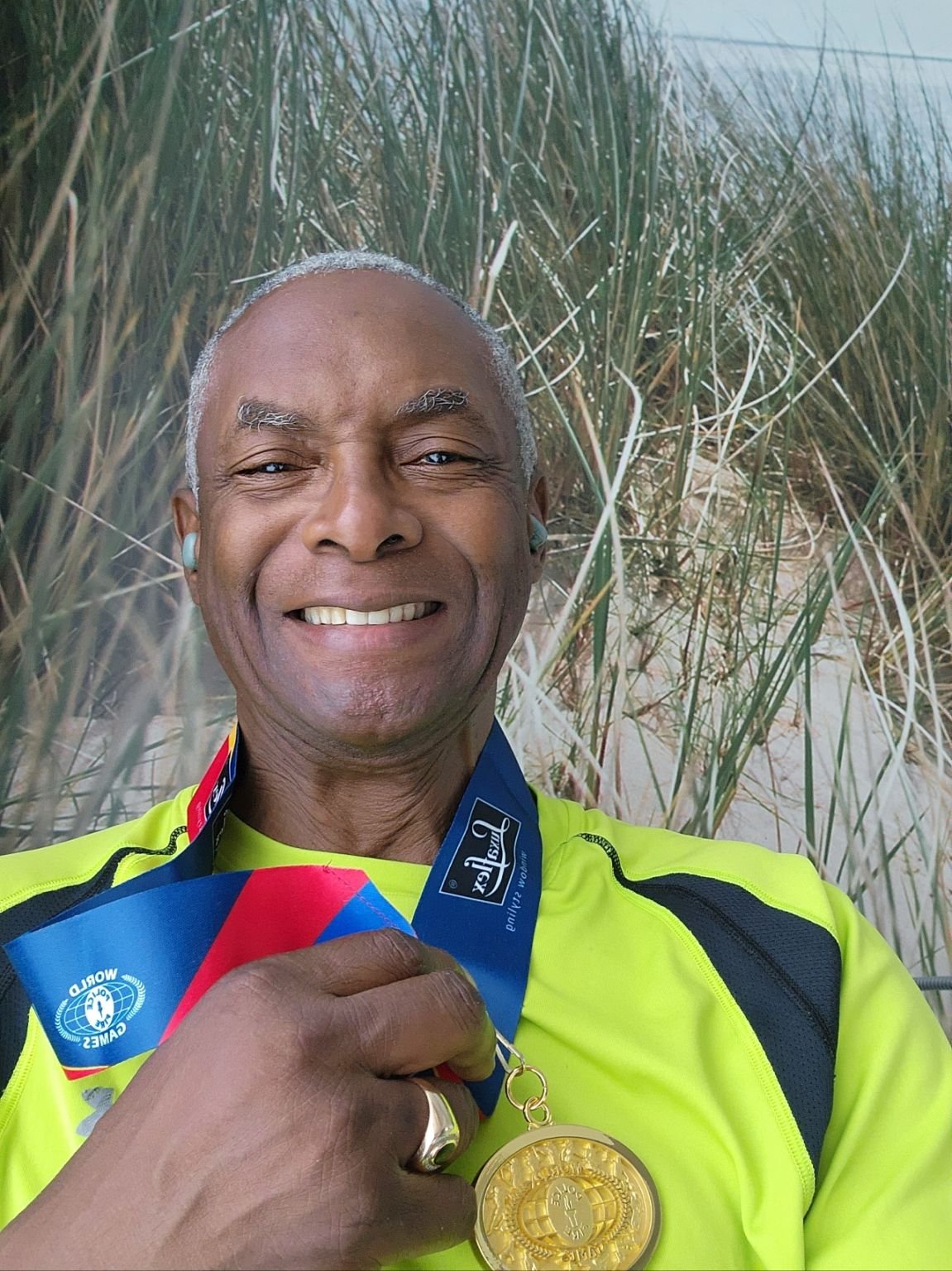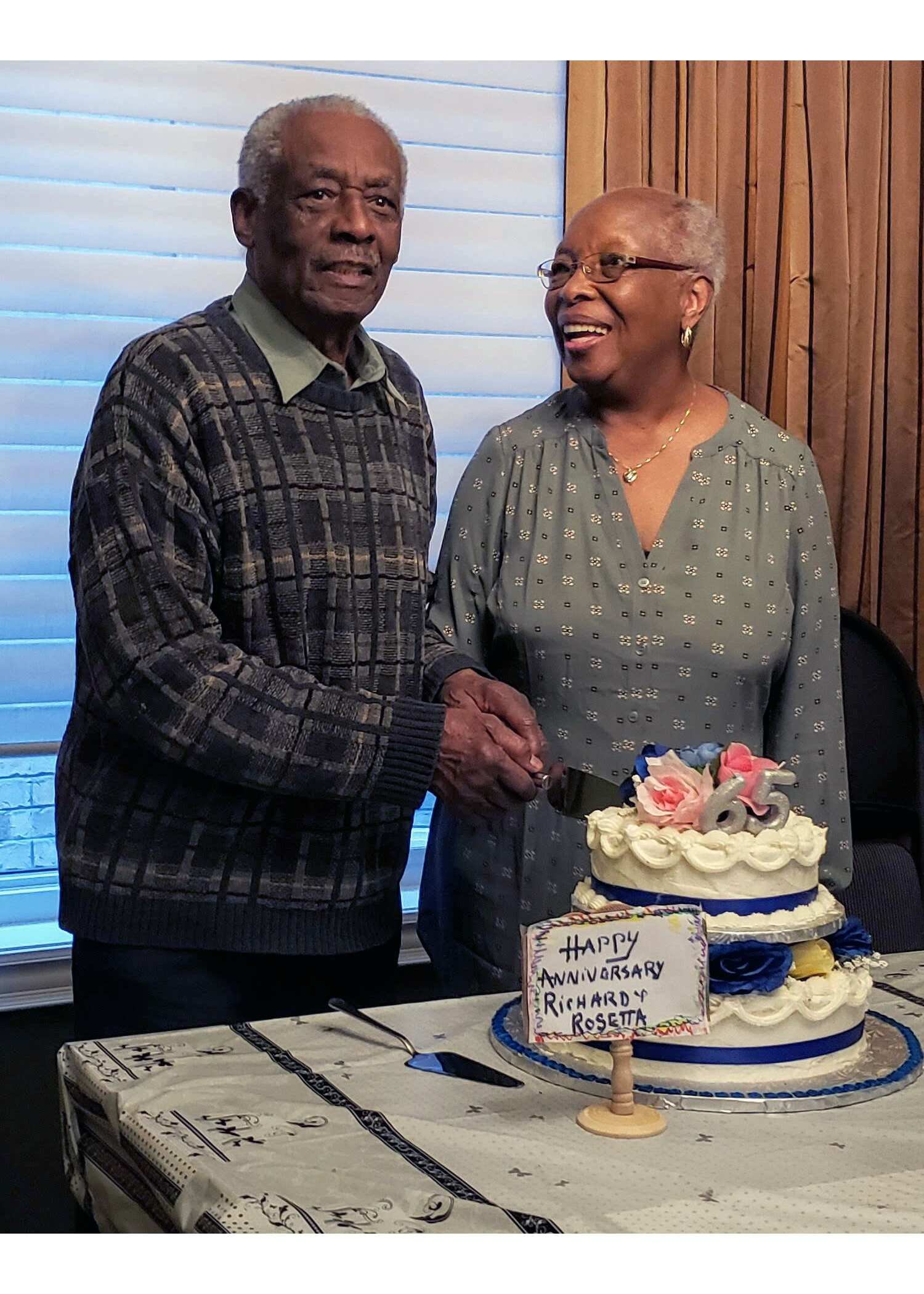Retired Toronto cop Philip Semple achieves doctorate degree and gold medals at World Police Games
October 4, 2022
Had Philip Semple not being fired from Toronto Police Service (TPS), he might not have pursued tertiary education.
A few weeks before the end of his 18-month probationary period, the Unit Commander pulled the new recruit into his 21 Division office and asked him to sign a piece of paper.
“When I inquired what it is, he said, ‘I want you to resign’,” Semple recounted. “When I asked what it is about me that is not what you are looking for in a police officer, he said, ‘I don’t think you are suitable and don’t take too much time. Just get the paper work done soon and get it back to me’.
Devastated and unsure what to do, two Service members approached the dejected officer after he stepped out of the station, advising him not sign the document. They also told him to approach Jamaican-born Allan Evelyn who, at the time, was the President of the Metropolitan Toronto Police Association.
“You couldn’t stop anything because you didn’t need a reason in those days to fire a police officer,” said Semple.
His was one of 10 cases that went to the Supreme Court of Canada.
“It was not fought on racial grounds because White officers were part of the group,” he pointed out. “It was fought on not being given a reason.”
During the litigation process, Semple chose to attend university.
About two-and-a-half years into his undergraduate studies at Wilfrid Laurier University, he received a reinstatement letter.
Back on the job, Semple served a six-month probation period while assigned to 31 Division.
Jean Boyd, who in 1992 was appointed TPS’s first female Deputy Chief, was his Unit Commander.
“She was a fantastic leader,” he said. “It was not until this year while talking to someone that I found out how much she did to ensure that nobody gave me any grief.”
During his 31 years on the job, Semple did not receive a promotion despite doing the exams.
Three years after retiring from the Service in 2008, he graduated with a Master’s in Higher Education from Central Michigan University.
Last August, Semple completed his PhD oral exam and will graduate in November from the University of Toronto Ontario Institute for Studies in Education.
What was his reason for pursuing a PhD?
“On the surface, it was to further the research I had started into racial profiling, add to the conversation about race and marginalization and hopefully come up with a mutually beneficial means of addressing the problem,” the 67-year-old said. “However, deep down, I think that the need for validation and a desire to make my parents proud are also there. Validation from the point that in 31 years with the police, even though I was given leadership roles as a Detective Constable and a Training Constable where I ran my own investigative cases in the Youth Bureau and trained officers as a Use of Force instructor, I never progressed beyond the rank of Constable. I feel sure that lack of progression was not due to my lack of intelligence or leadership ability.”
‘Implicit Bias in Police Recruits and their Instructors’ is the doctoral thesis.
When Semple approached the Ontario Police College (OPC) with a request to test recruits and instructors as part of his research, he hit a brick wall.
“I got zero response after taking 11 months just to get their permission to go in,” said the lifelong learner who also has a Business Administration diploma. “Then, I turned my attention to the RCMP and they agreed even though the response was really low. There is a Director at the RCMP who heard about the tool and said he wants to test all the applicants before they enter the recruiting process.”
In less than three months, he had 5,282 responses.
“That was huge secondary information and that drove the data process of my thesis,” said Semple who interviewed five experts and 88 RCMP recruits.”
Most officers cut ties completely with TPS once they retire.
Not Semple.
Since 2012, he has been the Grant Committee Chair of ProAction Cops & Kids that, for the past 28 years, has been the largest private funder of Toronto Police programs for young people.
An integral member of the Toronto Police Ski & Snowboard Club, Semple has also represented the Service at the North American Police Ski championships and the World Police & Fire Games (WPFG).
At last August’s 19th biennial WPFG in Rotterdam, he won gold medals in the 100-metre (15.10 secs.) and 200-metre (32.19 seconds) events in the 65-69 age category despite testing positive for COVID in Ireland a week before the Games started. He completed the 200-metre final after suffering a left thigh muscle strain with about 50 metres to go to the finish line.
Philip Semple proudly displays his 100-metre gold medal (Photo contributed)
Towards the end of last winter, Semple and friends Art Wright and Cam McFarlane, who are also retired police officers, decided to compete in the Games.
“Once that decision was made, I had to figure out what events I wanted to do,” he said. “I know how to do the 100-metre as it is an event that I have done for many years. I also ran the 110-hurdles frequently.”
For a senior citizen daily rate of $1.75, Semple joined the Track & Field Centre at York University.
While hurdling one day, an interested spectator asked him what he was doing.
The person turned out to be former Canadian sprint coach Val Grose.
“I am very grateful to him because he advised me to do five steps between the hurdles instead of three which I did,” Semple, who competed in the pentathlon at the inaugural WPFG in San Jose, California in 1985, said. “I made the switch and was able to get over them.”
Grose later accepted his request for coaching.
“Val worked me really hard three days a week at York, getting the legs up and the stretching right,” said the Master’s competitor. “About two weeks before I left for the Games, he said he didn’t think my core strength was strong enough to hurdle properly and he suggested I just do the short sprints which the training I was doing worked for. It was a hard decision as I felt I was backing away from something, but I accepted his advice.”
In becoming a police officer, Semple followed his father’s footsteps.
Richard Semple served briefly with the Guyana Police Force.
After a senior officer asked him to fabricate evidence, he resigned and took his wife to England.
“My dad was firm in saying, ‘No, this is not what happened’,” his son said. “He is very ethical and didn’t want any part of that.”
Richard and Rosetta Semple, who are 94 and 91 years respectively, have been married for 68 years.
Richard and Rosetta Semple (Photo contributed)
Semple’s parents’ have significantly influenced his life.
“They raised me to understand and believe that I am not better than anyone else, but nobody else is better than me,” the eldest of three siblings noted. “They always went out of the way to try to provide me with everything I needed, even if it was more of a want. When I started skiing in high school, mom drove me to Glen Eden and sat in the lodge knitting all day while I took lessons. That is the sport I am most passionate about and it would not have been possible without my parents.”
Nine years after his birth in England, the family relocated to Canada in 1964.
In high school at Thomas A. Blakelock in Oakville, he and younger sister Mary Cummings along with actress/singer Arlene Duncan were the only Black students.
The school’s first Black Student Council President and Valedictorian, Semple had brief stints with the Shell Oakville Refinery and London Life, selling insurance before applying to TPS and Halton Regional Police Service at age 21.
“Toronto was the first to get back to me and I accepted,” he said. “I didn’t want to go spend time in school at a university and I thought about lawyering. I figured I would do policing for about four or five years, and with a good grounding in law, move into the legal profession. When I became a police officer, I liked the profession and stuck with it.”
Since 2005, Semple has been at Centennial College in several roles, including Professor, Program Co-ordinator of the Police Foundations program and Interim Chair of the Emergency & Public Safety Institute.
“I just enjoy seeing the young minds and the ones that really get it,” the Mimico Presbyterian Church Elder said. “That you are able to sit there and work with them, show them new ways of doing things and new possibilities bring me such joy and is so wonderful. It’s even more gratifying when you see them leave and go on to do great things.”
He is also a member of TNT Justice Consultants that provides services, including career coaching, leadership development, occupational training, investigations, audits and research to clients and organizations.
In 2018, Semple won a spot in the Toronto Metropolitan University Canada Excellence Research Chairs Migration through Integration Program and was offered the opportunity to produce a short film.
His creation, F.I.N.E (Freedom is Not Enough) is a four-minute personal account that underscores the reality that freedom alone is not enough to succeed.
Semple and his wife of 36 years, Linda Semple, have two children.
Cameron Semple, who was a Green Party of Canada candidate in the October 2019 federal elections, is a Senior Product Manager at Ontario Digital Service, and Jillian Semple is a TPS officer assigned to Traffic Services.








